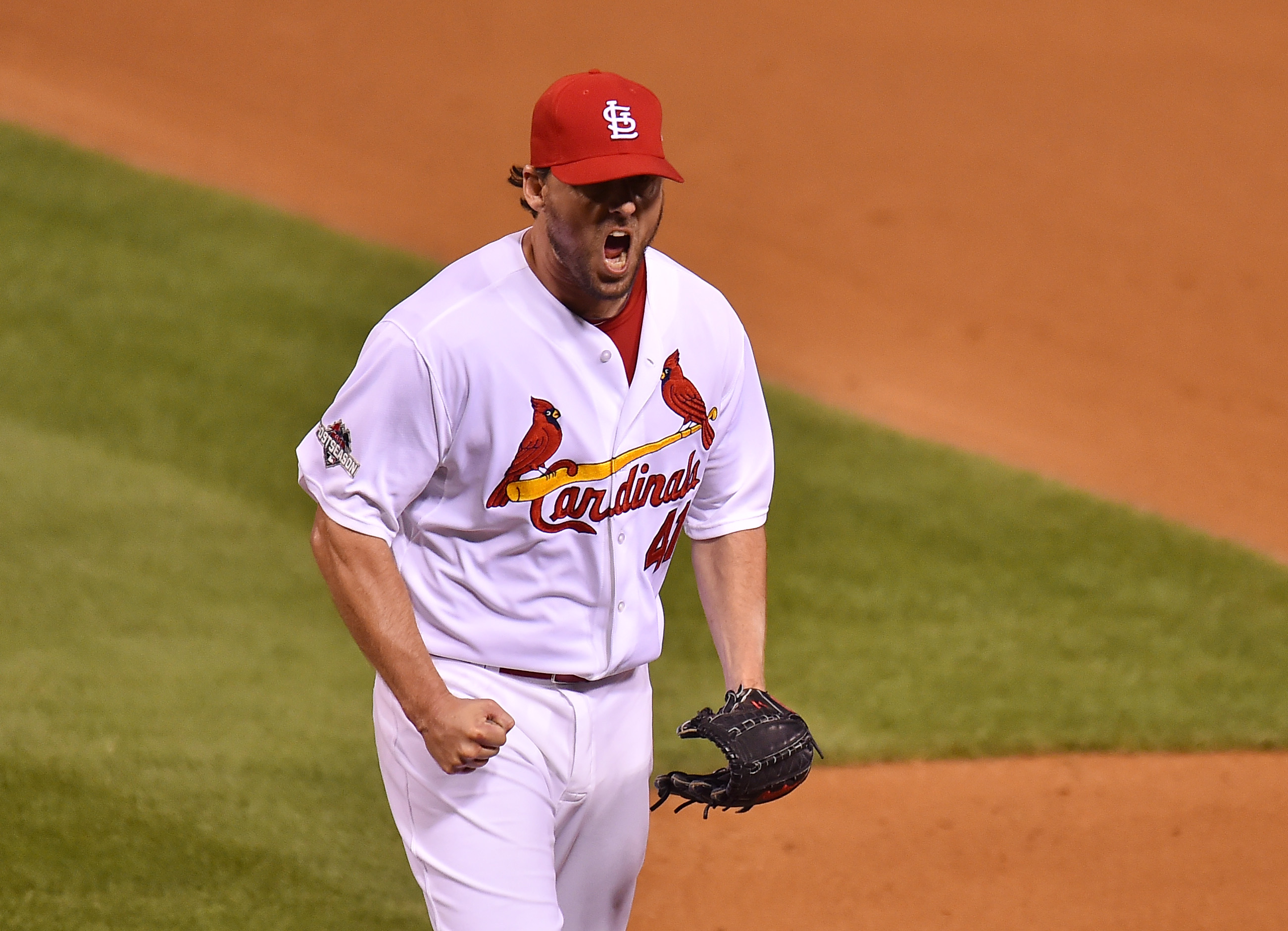Over at our main site, Wrigleyville’s Editor-in-Chief Sahadev Sharma joined forces with George Bissell to write up the Cubs’ acquisition of John Lackey. The full story is available only to paying subscribers, but we thought you’d enjoy this preview here.
Soon after the Cubs were eliminated from the playoffs, Theo Epstein made it clear that he wanted to take a good team and make it great this offseason. Epstein pointed to four areas of weakness: starting pitching depth, outfield defense,contact/situational hitting, and controlling the running game—and plainly stated that this winter would be spent addressing those needs in particular. After filling their 40-man with some under-the-radar bullpen arms, Epstein and the Cubs have with the Lackey signing begun in earnest to take their team to what they hope is an elite level.
Before trying to understand why the Cubs went this route, let’s get the negatives of this signing out of the way.
Lackey will pitch with the Cubs in his ages 37 and 38 seasons. He’s coming off 218 of the best innings of his career. So not only are the Cubs paying for a pitcher who is pushing 40, they’re buying high. But neither the length nor cost will handcuff the Cubs, this year or beyond. While it would be nice for Cubs fans if their team could outbid everybody for guys like David Price and Zack Greinke, this signing is as clear a signal as there can be that they just aren’t at that level yet. As Theo Epstein told local Chicago beat writers regarding Price’s signing with the Red Sox:
Obviously, it was a big contract and they’re a little bit more fully developed and fully realized from a payroll standpoint now – and it’s a place we hope to be in several years. Right now, we just couldn’t compete at that level.
When the Cubs finally get their own big TV contract—likely in 2020—they’ll be “fully realized,” as Epstein put it, at least financially. At that point you shouldn’t hear much talk about the need for financial flexibility, but right now that’s what this team needs. They have other holes to fill, and while Lackey is a bit older, he fills a major need, could do so at a very high level, and keeps the team from investing in a risky, long-term arm while also keeping that option open when more funds are available in future offseasons.
To read the rest of the article, head on over to Baseball Prospectus.
Lead photo courtesy Jasen Vinlove—USA Today Sports.
